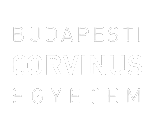Dobos, Imre and Gobsch, Barbara (2011) Supply chain coordination in a HMMS-type supply chain with purchasing. Műhelytanulmány (working paper). Vállalatgazdaságtan Intézet, Budapest.
|
PDF
- Requires a PDF viewer such as GSview, Xpdf or Adobe Acrobat Reader
338kB |
Absztrakt (kivonat)
Absztrakt. Egy ellátási láncot vizsgálunk egy beszállítóval és egy termelővel. A termelő kereslete időben ismert. A termelő és a beszállító költségfüggvénye kvadratikus termelési és készlettartási költségből áll. Ezen kívül értelmezünk egy lineáris beszerzési költséget termelő és a beszállító között. A modell ebben az értelmezésben egy differenciáljátékként értelmezhető. A beszállító döntési változója az értékesítési (beszerzési) ár és a termelési rátája, míg a termelőnek a beszerzési mennyiség és a termelési ráta. A problémát, mint egy Nash-játékot és mint kooperatív játékot értelmezzük, amit a Pareto-megoldásként értelmezünk. A feladatot így visszavezethetjük egy Holt-Modigliani-Muth-Simon (HMMS) problémára. ----- Abstract. We investigate a supply chain with a supplier and a manufacturer. The manufacturer knows the demand for her product. The product is produced from a product supplied by the supplier. The purchased product is stored in a cross-docking way, i.e. there is no inventory of the purchased product and the planned production is ordered from the supplier. The costs of the manufacturer consist of quadratic inventory holding costs, quadratic production cost, and linear purchasing cost. It is assumed that the market price of the end product is known as well, so the sales of the producer are calculated. The linear purchasing cost is paid to the supplier. The goal of the manufacturer is maximize her cumulated profits. The sales of the supplier are the ordering cost of the manufacturer. The costs of the supplier are the quadratic manufacturing and inventory holding costs. The goal of the supplier is to maximize the sales reduced with the relevant costs. The supplier and the manufacturer want to negotiate about the sales price of the supplier and the quantity ordered by the manufacturer. In this paper we will not examine the bargaining process which determines the adequate price and quantity. The situation is modeled as a differential game. The decision variables of the supplier are the sales price and the production quantity of the supplier. The manufacturer will choose the cost minimal production plan to minimize her costs, so maximize the cumulated profits. The problem is a differential game with two players. The basic problem is a Holt-Modigliani-Muth-Simon (HMMS) problem extended with linear purchasing costs. We will examine two cases: the decentralized Nash-solution and a centralized Pareto-solution to optimize the behaviors of the players of the game.
| Tétel típus: | Monográfia, jelentés (Műhelytanulmány (working paper)) |
|---|---|
| Kulcsszavak: | Kulcsszavak: Optimális irányítás, Ellátási láncok koordinációja, Nagykereskedelmi árszerződés, Dinamikus játék ----- Keywords: Optimal control, Supply chain coordination, Wholesale price contract, Dynamic game |
| Témakör: | Logisztika Döntéselmélet Matematika. Ökonometria Termelésmenedzsment |
| Azonosító kód: | 351 |
| Feltöltő: | Krisztina Kulcsár |
| Elhelyezés dátuma: | 13 Ápr 2011 10:18 |
| Utolsó változtatás: | 01 Júl 2016 04:05 |
Csak a repozitórium munkatársainak: tétel módosító lap

